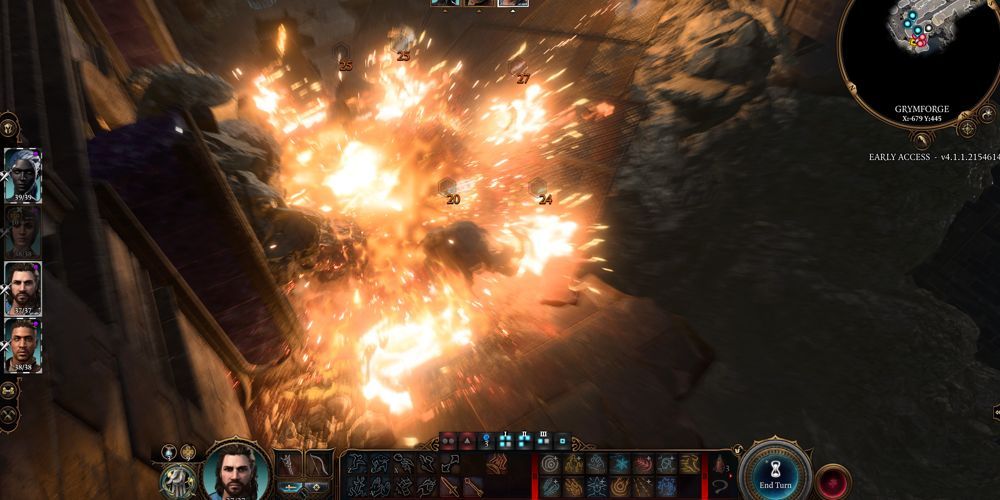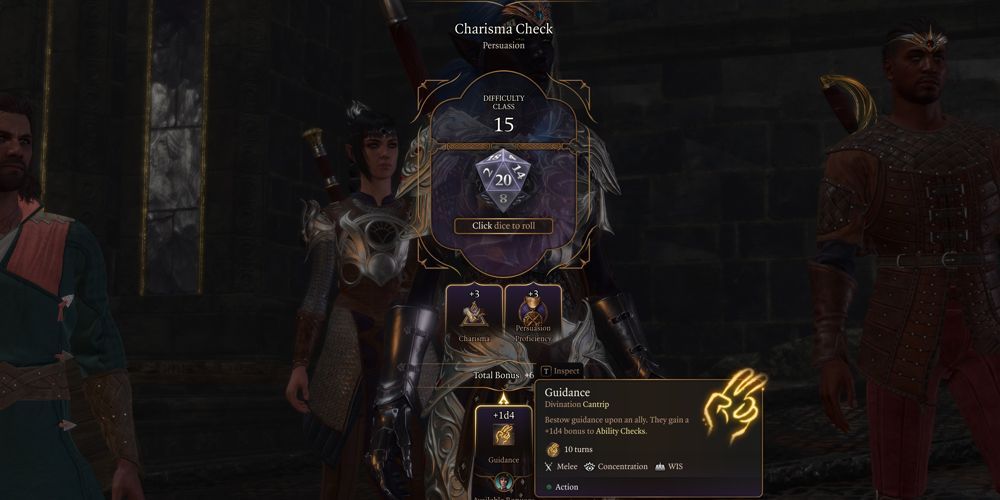Baldur’s Gate 3 draws almost all of its inspiration from the source material featured in the fifth edition of the Dungeons and Dragons series of tabletop games. There are some noticeable differences between the two rule sets, but any D&D enthusiast will be familiar with all the terminology and be able to adopt the video game-adapted elements.
Baldur’s Gate 3 makes use of Ability Scores to judge the aptitude of the players more broadly by deriving values for several player skills, while Skills will allocate points specifically in one area of focus. Understanding these values will be imperative to making a well-developed character.
Why Do Ability Scores Matter?
Abilities are what aspects of life your character has focused on as a whole. For example, players that train in a field and fight monsters all day to make money are going to tone their bodies and not educate their minds. These Ability Scores will reflect the kind of performances that will be expected of them before becoming aware of what specific areas they are skilled in, such as how they cast spells and how advanced those spells are.
What Are The Ability Scores?
There are 6 Ability Scores in the game, each of which is a measure of something that can define a character based on how they are spread out among them.
|
Ability Name |
Description |
Benefits |
|
Strength |
This measures your physical physique - how high you can jump, how long you can swim against a raging current of water, and how long you can hang from a rope as you are pulled through the air by a threshing dragon. You use your raw muscles to deal damage and to solve problems with brute force. |
|
|
Dexterity |
This is your prowess in understanding how to manipulate things with skillful hand movements. It could be working two pieces of metal to manipulate the pins of a lock, choosing how your feet move along the ground while shifting your weight to reduce sound, and how much a bow must be pulled back for an arrow to hit precisely where you want it. This is for acts where you cannot just power through with raw muscle like with strength, but rather things they practiced over and over to improve until it's second nature. |
|
|
Constitution |
This determines how skilled you are at surviving under harsh conditions. It is how long it takes before you succumb to poison, how long you can hold your breath, and how many times you can be stabbed with a blade before going down. It serves as a measurement of the health and stamina of a character. This is the bread and butter of meat shields and bosses that just refuse to die. |
|
|
Intelligence |
Where soldiers are outside swinging at training dummies, scholars are inside reading books. Intelligence is the measure of how much of your time you have spent learning about topics and expanding your well of knowledge and the magical arts, rather than developing your body and physical attributes. This plays a vital role in the party in knowing things about the area you are in that could completely change how you could approach something. You may know of a medicinal plant that grows in the area, or be able to decipher a riddle to progress through a dungeon. |
|
|
Wisdom |
Where Intelligence measures what you have trained yourself to know, wisdom is more common sense. It is used to notice something that should not be there at a glance, or why a room is so warm despite there being no fireplace. Your natural and unnatural senses tell you something is up without you needing to know why. It is also a measure of how to connect on an emotional level without needing to use words, such as forming a bond with an animal. |
|
|
Charisma |
Arguably the most important quality in any role-playing game or video game ever, Charisma will normally open up new doors that otherwise would never be opened. With it, you can convince a guard that there is trouble by lying about a man stabbed in the street, you could barter with a merchant for a cheaper price, or you could tell someone you cannot guarantee the safety of their loved ones if they keep refusing to tell you what you want to know. It is a powerful tool for good and evil players alike to get outcomes that significantly reward more. |
|



